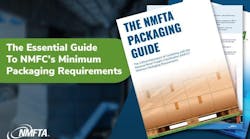Industry analysts, futurists and other prognosticators think a lot about “wildcards,” those unlikely but theoretically possible events that could saw the premises out from under their forecasts and leave them pointing embarrassingly in the wrong direction, predictions all a-jumble. Such is the case now with projections concerning the global oil supply. How on earth could anyone draw tidy trend lines through the unrest in the Arab world, past the earthquake/tsunami/nuclear crisis in Japan and on through the fragile economic recovery?
According to The Economist, for example (Feb. 26-March 4, 2011), there is precious little left in the way of reserve oil production capabilities, and almost all of that is centered in the Middle East, mostly in Saudi Arabia. Strategic reserves of oil in America, China and elsewhere in the richer world are estimated to be at about 4.3 billion gals., or enough to handle global consumption at the current rate for about 50 days.
They note that Saudi Arabia could probably handle Europe's oil shortage if Libya went off line or a re-established Libyan government feels less inclined to do business with the West. However, if Algeria, the smallest Middle Eastern oil producer, also went dry, all the production slack could be gone and oil prices could race over $200/barrel.
Then there is Japan. That country (usually the third largest oil consumer in the world) is now using less oil because of damage to factories and infrastructure from the earthquake and resulting tsunami, but some power source will have to fill the electricity gap caused by their terrible nuclear disaster in order for normal life to resume and rebuilding to begin.
On St. Patrick's Day, when this column was written, West Texas Intermediate oil had jumped to $100.90/barrel and Brent North Sea crude hit $114.01. So, what are North American truck fleet owners to do in the face of so many — and such wild — wildcards?
It would be foolhardy to join the speculators at this juncture, but the trucking industry has a few advantages that might be of use about now. First of all, any fleet still up on its wheels knows a lot more about maximizing efficiency thanks to the tough lessons of the recession and the last run-up in diesel prices. There have also never been more fuel-conserving vehicles, more productivity-driving technologies, or more power options available.
Secondly, savvy shippers and carriers have learned to respect the strength of collaboration when it comes to making things work along a supply chain. This seems like a great time to look up and down those supply chains to make sure that key partnerships are in good working order and that plans are in place to deal with a fuel crisis together if one occurs again.
Finally, it might be worth thinking twice about tapping into those valuable U.S. strategic oil reserves. The run-up in fuel prices has certainly been eating into much-needed profits. However, this might not be the rainy day for which those oil reserves were intended. Think about the oil embargo of 1973, for instance, when fuel shortages, not fuel prices, were the problem at hand. A long oil availability crisis, say longer than those 50 days of reserve supply, could make today's troubles seem manageable by comparison.
Wendy Leavitt is Fleet Owner's director of editorial development. She can be reached at [email protected]


